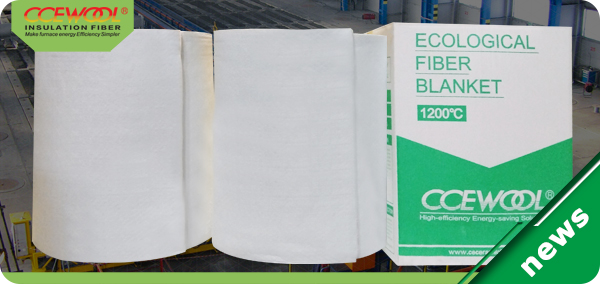In the aluminum industry, the anode baking furnace (ABF) is a critical piece of equipment that directly impacts production efficiency and product quality. The expansion joints of ABFs are subjected year-round to extreme conditions: temperatures exceeding 1200°C and frequent thermal cycling. These harsh demands place stringent requirements on insulation materials. While refractory ceramic fiber (RCF) blankets were long regarded as the preferred solution, in practice they have increasingly revealed limitations that restrict equipment safety and thermal efficiency improvements.
Key Challenges of Traditional RCF Blankets
Higher shot content: Compared with low biopersistent (LBP) fiber blankets, RCF blankets typically contain a higher proportion of shot, which results in relatively higher thermal conductivity and reduced insulation performance.
Heavier structural load: To achieve the same insulation level, RCF blankets usually require higher density or greater thickness, increasing overall material weight by about 25% compared with LBP blankets. This adds stress to furnace steel structures and increases installation and logistics costs.
Regulatory compliance and waste management requirements: Current regulations, such as the EU REACH directive and U.S. EPA standards, impose restrictions on RCF use. This translates into additional costs for compliance management, worker protection, and waste disposal.
CCEWOOL® Solution: Low Biopersistent Fiber Blanket
Lower thermal conductivity: CCEWOOL® LBP fiber blankets offer thermal conductivity 15–20% lower than traditional RCF blankets. Under identical operating conditions, they significantly reduce thermal losses and lower furnace shell surface temperatures, helping companies achieve meaningful energy savings.
Reduced shot content: Manufactured with a unique production process, CCEWOOL® LBP blankets contain less than 12% shot. This lower level not only enhances insulation effectiveness but also minimizes dust irritation during installation.
Lighter structural load: To reach equivalent insulation performance, CCEWOOL® LBP blankets can be applied at lower density grades (e.g., 96 kg/m³ instead of RCF’s 128 kg/m³). This reduces overall weight by 20–25%, easing load on furnace structures while lowering transportation, installation, and maintenance costs.
Health and safety advantages: Made from alkaline earth silicate (AES) materials, CCEWOOL® LBP blankets are fully biodegradable, ensuring worker safety at the source. Certified by Germany’s Fraunhofer Institute and compliant with the Globally Harmonized System (GHS), they help companies meet international standards while reducing regulatory costs.
With lower thermal conductivity, enhanced dimensional stability, and lighter weight, CCEWOOL® LBP fiber blankets deliver a more efficient and reliable insulation solution for anode baking furnaces. They not only overcome the core limitations of traditional RCF blankets but also provide substantial benefits in energy savings, extended service life, and reduced operating costs—offering strong support for green production and sustainable growth in the aluminum industry.
Post time: Sep-17-2025


